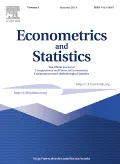Heterogeneous effects are prevalent in many economic settings. As the functional form between outcomes and regressors is generally unknown a priori, a semiparametric negative binomial count data model is proposed which is based on the local likelihood approach and generalized product kernels. The local likelihood framework allows to leave unspecified the functional form of the conditional mean, while still exploiting basic assumptions of count data models (i.e. non-negativity). Since generalized product kernels allow to simultaneously model discrete and continuous regressors, the curse of dimensionality is substantially reduced. Hence, the applicability of the proposed estimator is increased, for instance in estimation of health service demand where data is frequently mixed. An application of the semiparametric estimator to simulated and real-data from the Oregon Health Insurance Experiment provide results on its performance in terms of prediction and estimation of incremental effects.
Publications
"Semiparametric Count Data Modeling with an Application to Health Service Demand" (with Philipp Bach and Martin Spindler), Econometrics and Statistics, 2018, 8, 125-140
Publications |
